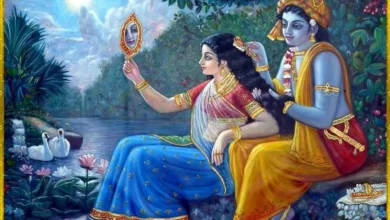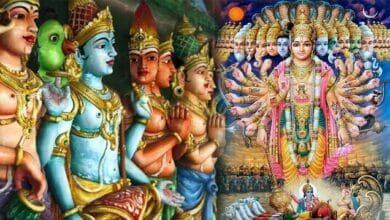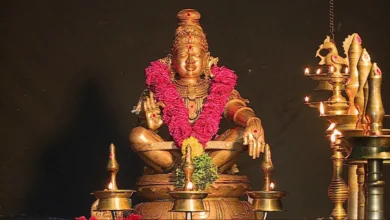The Pandavas: Beacons of Dharma in the Mahabharata

In the grand tapestry of the Hindu epic Mahabharata, few figures shine as brilliantly as the five illustrious Pandava brothers. These noble scions of the Kuru dynastic line embodied the unwavering spirit of dharma, righteousness, and the relentless pursuit of justice against all odds. Their extraordinary lives, marked by triumph and tribulation, continue to inspire and captivate souls across generations.
The Celestial Origins
The Pandavas were the sons of King Pandu and his two wives, Kunti and Madri. However, their extraordinary births defy conventional norms, for they were divinely conceived through cosmic blessings bestowed upon the queen mothers:
- Yudhishthira: The eldest Pandava, born to Kunti through the grace of Lord Dharma himself. He personified truth, justice, and adherence to virtue, destined to become the mighty emperor of the Kuru kingdom.
- Bhima: A son of Kunti and the wind god Vayu, blessed with herculean strength and an indomitable spirit that struck terror into the hearts of his enemies.
- Arjuna: Born to Kunti through her invocation of Lord Indra, the king of the celestial devas. He was the consummate warrior, unmatched in archery and embodying the noble virtues of a true Kshatriya.
- Nakula and Sahadeva: The twin sons of Madri, born through divine intervention from the embodiments of the Ashvins, the celestial horsemen. They possessed impeccable character, wisdom, and mastery over the equine arts.
| Pandava | Celestial Father | Key Virtues |
| Yudhishthira | Lord Dharma | Truth, Justice, Virtue |
| Bhima | Vayu (Wind God) | Immense Strength, Indomitable Spirit |
| Arjuna | Indra (King of Devas) | Supreme Archery, Noble Kshatriya Virtues |
| Nakula & Sahadeva | The Ashvins (Celestial Horsemen) | Wisdom, Equine Mastery |
The Trials and Tribulations
Despite their exalted origins, the Pandavas faced a relentless onslaught of challenges and injustices orchestrated by their envious cousins, the Kauravas:
- They endured exile and countless assassination attempts in their youth, strengthening their resolve and solidifying their unbreakable brotherly bonds.
- In the famous game of dice, they were cruelly robbed of their kingdom and forced into a 13-year exile through deceit and trickery.
- During their exile, they faced numerous life-threatening ordeals, including the brutal attempt to disrobe their wife, Draupadi, in the court of Hastinapur.
Yet, through it all, the Pandavas remained unwavering in their adherence to dharma, displaying extraordinary courage, humility, and compassion – qualities that would eventually rally the righteous forces of the universe to their cause.
The Guardians of Dharma
When all paths to a peaceful resolution were exhausted, the Pandavas found themselves thrust into the cataclysmic Kurukshetra war against their oppressors, the Kauravas. In this ultimate clash of ideologies, the five brothers emerged as the very embodiment of dharma itself:
- Yudhishthira: The rightful heir to the Kuru throne, he personified the virtues of an ideal king and leader, resolute in upholding justice and truth.
- Bhima: The unstoppable force of the Pandavas, his incredible might served as the punishing arm of dharma against those who transgressed its sacred tenets.
- Arjuna: As the supreme archer and Lord Krishna’s chosen ally, Arjuna became the instrument through which the divine will manifested on the battlefield of Kurukshetra.
- Nakula and Sahadeva: The twin paragons of wisdom, they stood as pillars of counsel, guidance, and moral rectitude throughout the Pandavas’ trials.
With the blessings of Lord Krishna and an unwavering commitment to upholding righteousness, the Pandavas emerged victorious from the apocalyptic conflagration of the Mahabharata war. Their triumph heralded the re-establishment of dharma and ushered in a new age of peace and prosperity across the realm.
Even today, centuries after their extraordinary existence, the Pandavas remain revered as towering exemplars of virtue, resilience, and the indomitable human spirit’s triumph in the face of adversity. Their enduring legacy continues to illuminate the path for all seekers of truth, justice, and adherence to the sublime principles of dharma.
Discover more from Sanatan Roots
Subscribe to get the latest posts sent to your email.



One Comment